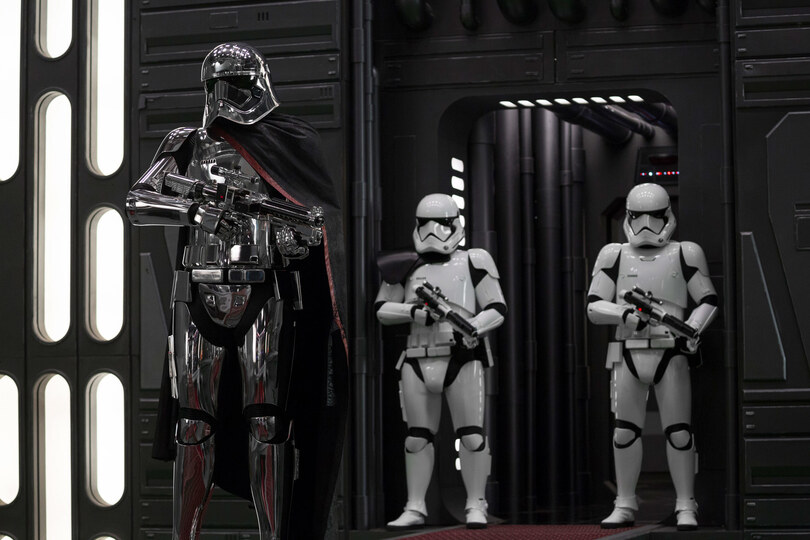Screen Time columnist discusses originality and lack thereof in Hollywood

Money greed in franchises like Star Wars and Spiderman might be hindering creative innovation and individuality in Hollywood, says Screen Time columnist Mike O'Connor. Courtesy of The Walt Disney Company
Is originality in Hollywood dead?
Some say yes, that studios today have no interest in taking chances with new stories. Some say no, that new advances in technology and storytelling have reinvented the way films are experienced.
Some might even argue this: we need not look further than the fact that, out of the top 25 best box office successes worldwide in 2017, 23 were adaptations, remakes or sequels. Christopher Nolan’s “Dunkirk” was the only live-action original film to crack that chart, and the only other original film to make the top 25 was Disney Pixar’s “Coco.”
Sequels aren’t always worse than their originals, and often they offer a fresh take on characters we already love. However, sequels that surpass their parent films are few and far between. More often than not, it’s simply easier for the studios to build from characters they know audiences already adore.
Coming in at number one for the year in 2017 was “Star Wars: The Last Jedi,” which is the eighth episode to the legendary franchise. It’s also the second major Star Wars release in just over two years, with the next three projects already lined up. Many have claimed “The Last Jedi” is better than the last installment to the franchise, “The Force Awakens,” — because it is.
Continuing down the list, there’s “Despicable Me 3,” “Cars 3,” “Guardians of the Galaxy Vol. 2,” and “The Fate of the Furious,” which is just a clever way of saying “Fast and Furious 8.”
I’m guilty, too, of supporting the mainstream pastiche: my favorite film in 2017 was Denis Villeneuve’s “Blade Runner 2049.” The surprisingly nuanced film stands out due to its incredible work with practical effects and Roger Deakins’ stunning cinematography. But more importantly, it’s a sequel.
Last year wasn’t the only one lacking originality on the silver screen. Referencing IMDB’s top 250 list, the top four movies of all time are “The Shawshank Redemption,” “The Godfather” parts I and II and “The Dark Knight,” in that order.
The first is an adaptation, so is the second, the third is a sequel and so is the fourth. Not a good start for originality. It appears the first truly original screenplay does not appear until the seventh spot, with Quentin Tarantino’s “Pulp Fiction.”
Most of the best movies are adaptations of novels. Some are adapted from great books, and some stories and their characters are not fully realized until they are reworked for the silver screen. Movies are no more than paraphrased versions of a story. A filmmaker only has a couple hours to get their point across, so every decision that makes its way to the screen is meaningful. When a screenplay is adapted from a novel, there’s going to be some information missing.
But amidst all the sequels and prequels and three-quels, there are a handful of filmmakers working today that are champions of original scripts. Woody Allen, Christopher Nolan, Paul Thomas Anderson, Quentin Tarantino, The Coen Brothers and Guillermo del Toro, to name a few.
Last year saw a new, original P.T. Anderson film, “Phantom Thread,” and Guillermo del Toro’s stunning aquatic love story, “The Shape of Water,” both nominated by the Academy for Best Picture. Other original screenplays in 2017 were “Split,” “Get Out,” and “Three Billboards Outside Ebbing, Missouri.” All three of those films were not only some of the most original projects of 2017, but easily of the last decade, too.
So, there is hope. But there’s simply too much money in franchises for studios to turn away from their current trend. Like Audre Lorde said, “The master’s tools will never dismantle the master’s house,” and I think she was referring to screenplays.
We live in a culture that supports imitation over emulation. There’s no call for improvement, so long as the explosions are in slow motion. Who cares about plot when you’ve got Spiderman?
Michael O’Connor is a freshman television, radio and film major. His column appears biweekly. He can be reached at moconn03@syr.edu.




